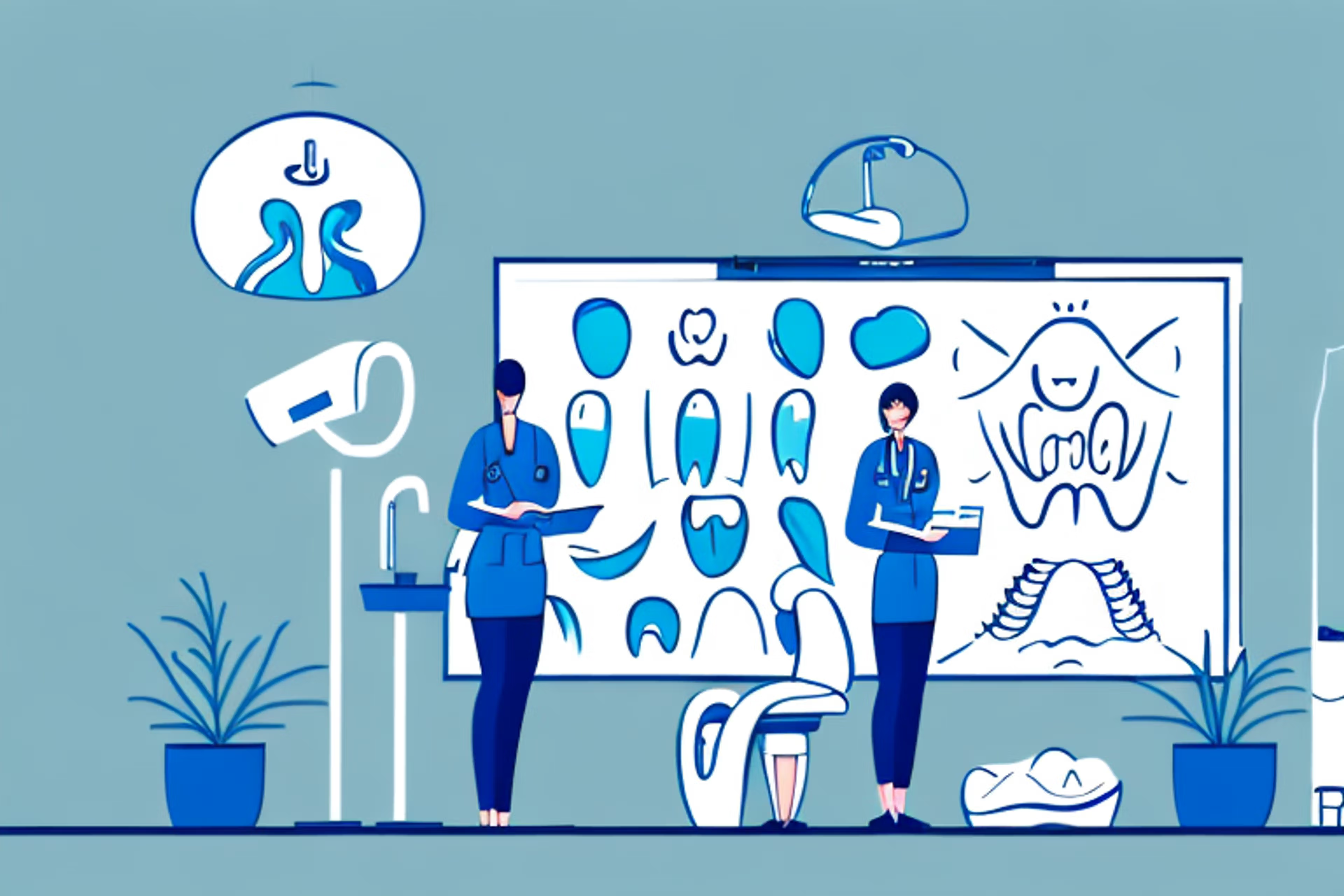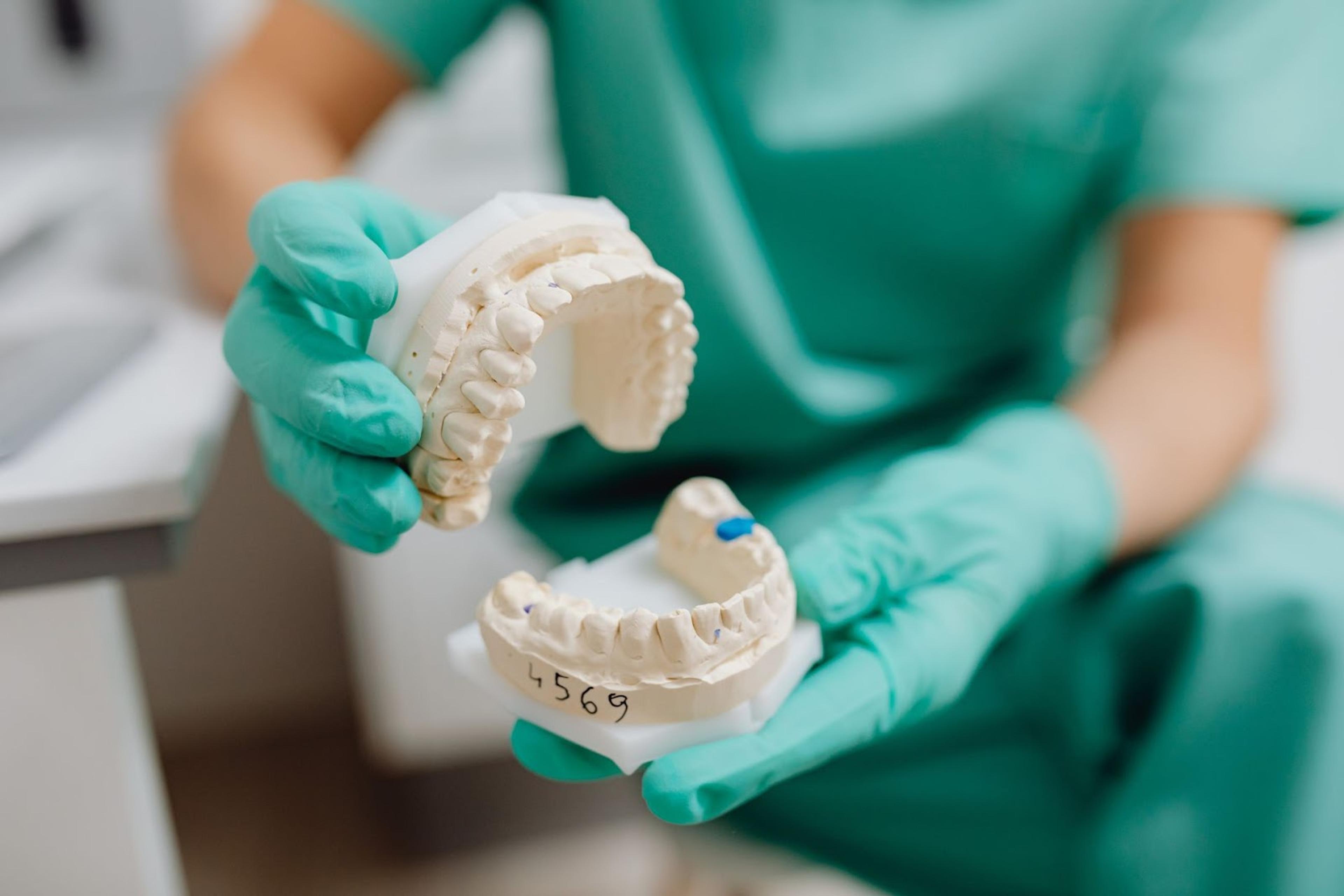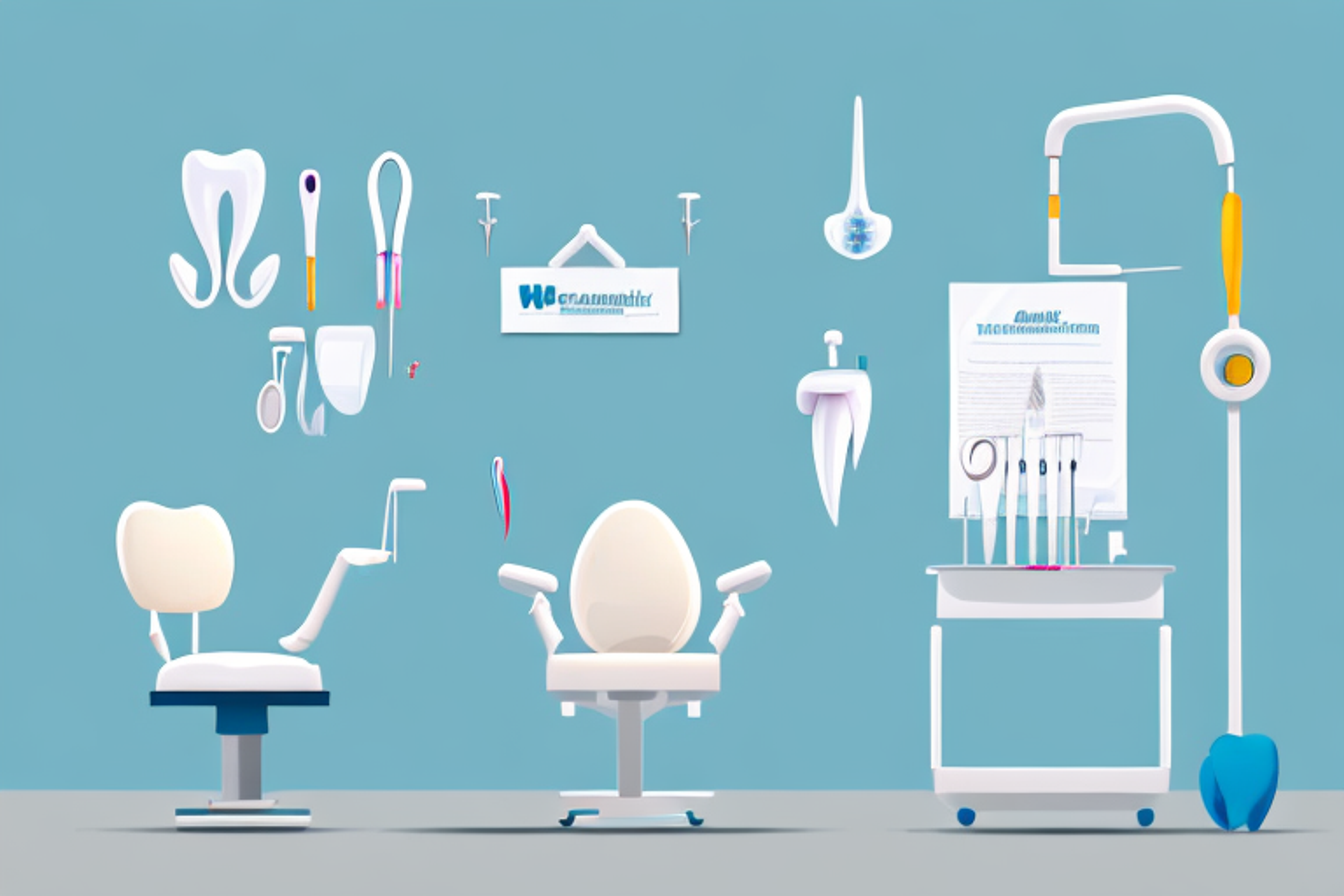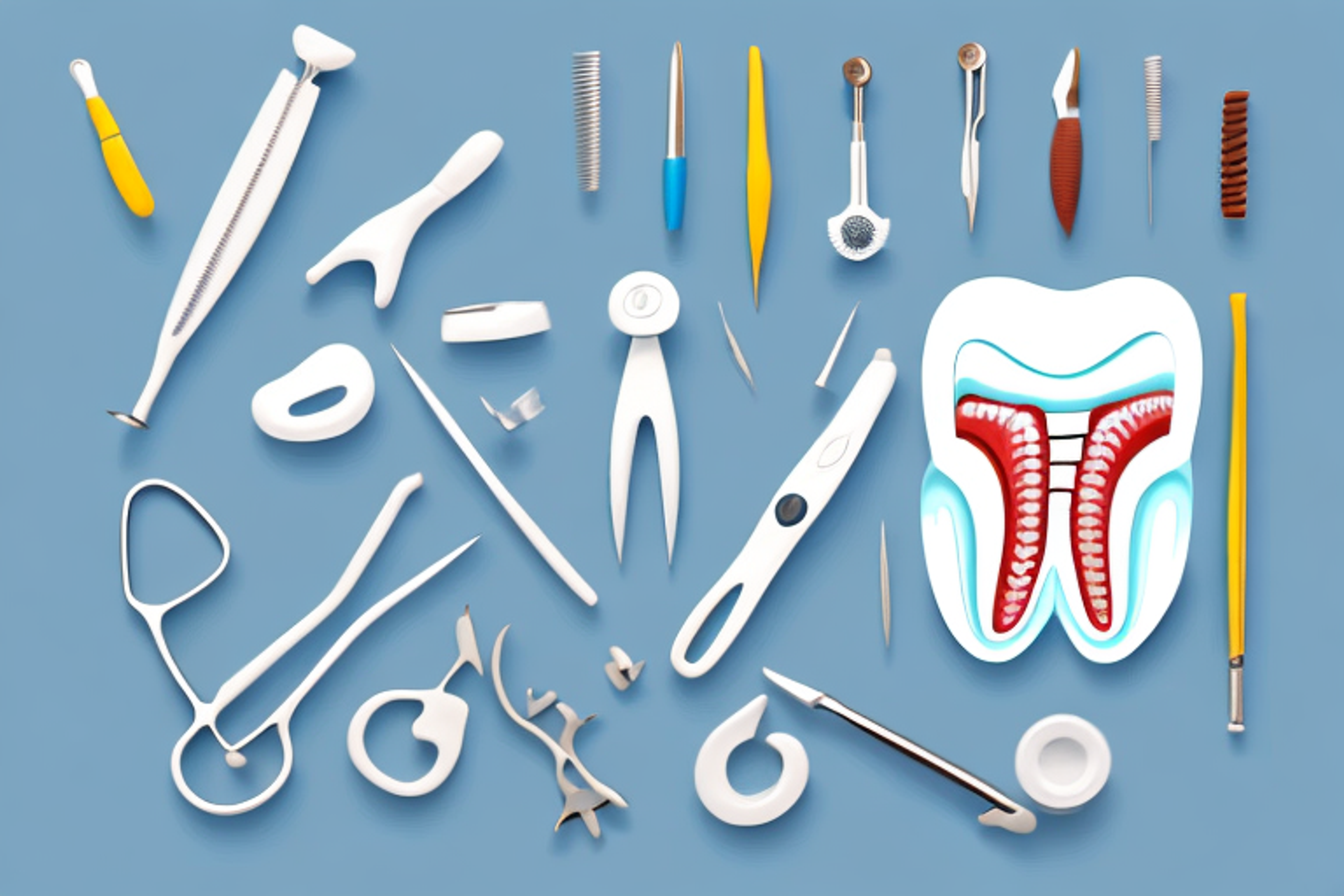Gap Year for Dental Schools: Pros, Cons, and How to Decide
Are you considering taking a gap year before dental school? This article explores the pros and cons of taking time off, and provides tips on how to make the best decision for your future.
Posted March 6, 2025

Table of Contents
Deciding whether or not to take a gap year before dental school is by no means a small decision, and you may be wondering if it's worth taking a year off from your studies to explore other opportunities. In this article, we'll look at the pros and cons of taking a gap year, and provide you with some tips on how to make the most of your time off.
Why Take a Gap Year Before Dental School?
Taking a gap year before dental school can be beneficial for various reasons. Here are some common advantages of taking a gap year:
- Gaining Experience: A gap year provides an opportunity to gain valuable experience, especially in the dental field. This can include working as a dental assistant, shadowing practicing dentists, or volunteering in dental clinics. Such experiences can give you insights into the daily realities of dentistry and help confirm if it's the right career path for you.
- Strengthening Your Application: Dental schools often appreciate applicants who have a diverse range of experiences and accomplishments. Taking a gap year can allow you to build your resume with relevant activities, extracurriculars, and research, making your application more competitive.
- Time to Prepare for Dental School: Dental school can be academically and emotionally demanding. Taking a gap year can give you time to mentally and emotionally prepare for the challenges ahead. It also allows you to take any necessary prerequisite courses or study for the DAT to improve your chances of getting into your preferred dental program.
- Personal Growth: A gap year can be a period of personal growth and self-discovery. It gives you the chance to step outside the academic environment, learn new skills, and develop a broader perspective on life, which can enhance your maturity and readiness for dental school.
- Financial Considerations: Dental school is a significant financial investment. Taking a gap year can give you time to save money, apply for scholarships or grants, or consider different financial options to ease the burden of dental school tuition.
- Reduce Burnout: Some students may feel burned out after completing their undergraduate studies. Taking a gap year can offer a break from the intense academic environment, helping to prevent burnout and ensuring that you start dental school with renewed energy and focus.
- Travel and Cultural Experiences: Some individuals choose to use their gap year to travel or engage in cultural exchange programs. These experiences can broaden your horizons, increase your cultural awareness, and add unique dimensions to your personal statement and interviews during the dental school application process.
How to Make the Most of Your Gap Year Before Dental School
If you decide to take a gap year, it's important to plan ahead and make the most of your time off. One way to do this is to set clear goals and objectives for your year. This could include gaining a certain amount of experience in the dental field, learning a new language or skill, or traveling to a specific destination. It can also be helpful to create a budget and timeline for your year, so that you have a clear plan for how you'll spend your time and resources.
You should also take advantage of opportunities to network and connect with others in the dental industry. Attend conferences, join professional organizations, and volunteer at dental clinics or hospitals. Building relationships and making connections can be invaluable in your future dental career.
Another way to make the most of your gap year before dental school is to explore different areas of dentistry. Use this time to shadow dentists in various specialties, such as orthodontics, periodontics, or endodontics. This will not only give you a better understanding of the different fields within dentistry, but it will also help you determine which area you may want to specialize in later on.
Finally, you can use this time to research and learn about new technologies and advancements in the dental field, which can give you a competitive edge when you start dental school.
How a Gap Year Can Strengthen Your Application
Taking a gap year can significantly strengthen your dental school application in various ways. During this time, you can engage in diverse experiences related to dentistry, such as working as a dental assistant, shadowing dentists, or volunteering in dental clinics. These experiences demonstrate your commitment to the field and provide valuable insights into the dental profession, making your application more compelling. Additionally, you can use the gap year to enhance your skills by taking relevant courses or acquiring new ones that align with dentistry. This showcases your readiness for dental school and dedication to continuous improvement. Relatedly, engaging in dental-related research or community service during the gap year can add further credentials to your application. In sum, the gap year offers an opportunity to strengthen many aspects of your application in order to demonstrate your passion, commitment, and readiness for dental school.
Read:
- How to Get Volunteer Hours for Dental School Applications
- A Guide to Clinical Experience for Dental School Applications
- How to Answer the "Additional Information" Section of Your Dental School Applications
- How to Answer the "Why Dental School?" Interview Question
- How to Request a Dental School Letter of Recommendation from Someone You Shadowed—With Sample Emails
- How to Overcome DAT Exam Anxiety
What Do Adcoms Look for in Applicants Who Take a Gap Year?
Adcoms look for specific qualities and experiences in applicants who take a gap year. While each dental school may have its unique criteria, the following are generally sought after in applicants who have taken a gap year:
- Relevant Experiences: Adcoms value applicants who have used their gap year to gain relevant experiences in the dental field. This can include working as a dental assistant, shadowing dentists, volunteering in dental clinics, or engaging in dental-related research. These experiences demonstrate a genuine interest in dentistry and an understanding of the profession.
- Personal Growth and Maturity: A well-spent gap year allows applicants to gain life experiences, explore their interests, and develop maturity. Adcoms appreciate candidates who have shown personal growth during their time off, as it suggests that they are better equipped to handle the challenges of dental school and future dental practice.
- Demonstrated Commitment: Taking a gap year can provide applicants with the opportunity to reaffirm their commitment to dentistry. Adcoms look for evidence that applicants have used this time to reflect on their career goals and demonstrate a clear and genuine passion for pursuing a career in dentistry.
- Academic Preparation: Gap years allow applicants to improve their academic readiness for dental school. Adcoms may look for candidates who have used this time to take additional courses, review prerequisite subjects, or prepare for the DAT to strengthen their academic foundation.
- Unique Experiences: Engaging in diverse experiences during the gap year can make an applicant stand out. Adcoms value candidates with a well-rounded background, which may include cultural experiences, community service, or travel, as it enhances the applicant's perspectives and potential contributions to the dental school community.
- Clear and Compelling Personal Statement: The gap year experiences and reflections can be a powerful basis for a strong personal statement. Adcoms look for applicants who can articulate how their gap year contributed to their decision to pursue dentistry and how it has shaped their aspirations and dedication to the field.
- Strong Letters of Recommendation: During the gap year, applicants have opportunities to build stronger connections with mentors, professors, or dental professionals. Adcoms appreciate well-crafted letters of recommendation that speak to the applicant's growth, passion for dentistry, and suitability for dental school.
Overall, Adcoms want to see that applicants have made the most of their gap year by engaging in meaningful activities, gaining relevant experiences, and demonstrating personal and academic growth. A well-structured and purposeful gap year can contribute significantly to a compelling dental school application.
The Risks and Challenges of Taking a Gap Year Before Dental School
While taking a gap year before dental school can offer various benefits, it also comes with some risks and challenges that you should consider:
- Delayed Career Progression: One of the most blatant risks is the delay in starting your dental career. By taking a gap year, you'll postpone completing dental school and entering the workforce as a dentist. This could potentially impact your earnings and career advancement timeline.
- Staying Motivated: During a gap year, it can be challenging to stay motivated and focused on your academic and career goals. Some individuals may find it difficult to transition back into a structured educational environment after a year off.
- Admissions Competition: Dental school admissions can be competitive, and taking a gap year means entering the applicant pool alongside fresh graduates and other candidates who might have more recent academic achievements and experiences.
- Financial Considerations: If you are taking a gap year to work or travel, there may be financial implications. Depending on your situation, you might face challenges in funding your activities during the gap year or in managing your finances for dental school later on.
- Knowledge Retention: Depending on the length of your gap year, you may encounter difficulties in retaining and recalling knowledge from your undergraduate coursework. This could potentially lead to a slower start in dental school as you need time to refresh your understanding of core subjects.
- Readjustment to Academics: After being away from formal education, some students may experience a period of adjustment when they return to the rigor of dental school. It may take time to get back into the study routine and adapt to the academic demands.
- Potential Changes in Career Goals: During a gap year, you may have new experiences and insights that could lead you to reconsider your career path. While this can be positive in some cases, it could also create uncertainty and indecision about pursuing dental school.
Note that although these cons exist, they can be mitigated with careful planning and goal setting. For instance, you can make a conscious effort to stay academically engaged by reviewing coursework and preparing for dental school, manage finances wisely through budgeting and seeking financial aid options, and stay motivated and disciplined by setting a routine and seeking support from mentors or coaches. By approaching the gap year with purpose and determination, you can maximize its benefits and pave the way for a successful dental school journey.
Making the Decision: Should You Take a Gap Year Before Dental School?
Deciding whether to take a gap year before dental school is a personal choice that requires careful consideration of individual circumstances and goals. While a gap year can offer various benefits, it is essential to assess whether it aligns with your long-term aspirations and needs. If you are unsure about pursuing dentistry or feel academically burned out, a gap year can provide time for self-reflection, personal growth, and gaining valuable experiences. It allows you to explore the dental profession, work in the field, or engage in research, which can strengthen your dental school application. A gap year can also provide financial and emotional preparation for the demands of dental school.
However, if you are confident in your career path, have a strong academic background, and are eager to begin your dental education, proceeding directly to dental school may be the best choice. Ultimately, the decision should be based on a careful evaluation of your academic readiness, financial situation, personal and professional goals, and the specific benefits you hope to gain from a gap year. By weighing these factors, you can make an informed decision that sets you on the path to a successful dental career.
Read next:
- How to Prepare for Your Dental School Interviews
- University of the Pacific Dental School: Application Requirements and How to Get In (2023-2024)
- Marquette Dental School: Application Requirements, Acceptance Rates, and How to Get In (2023-2024)
- UCLA Dental School: Application Requirements, Acceptance Rates, and How to Get In












